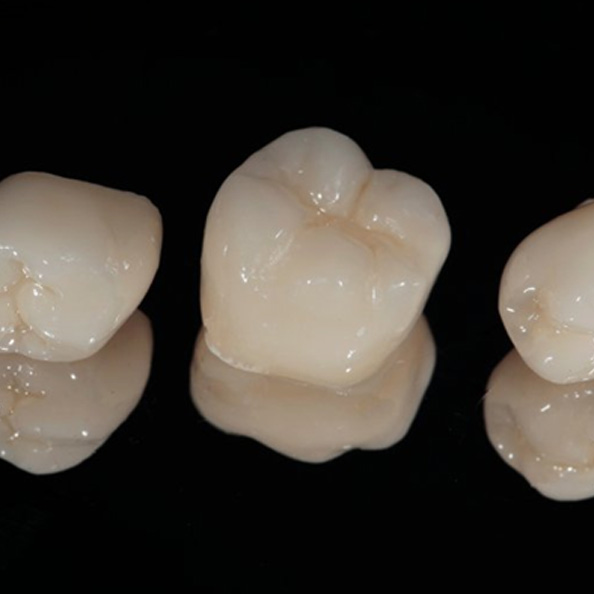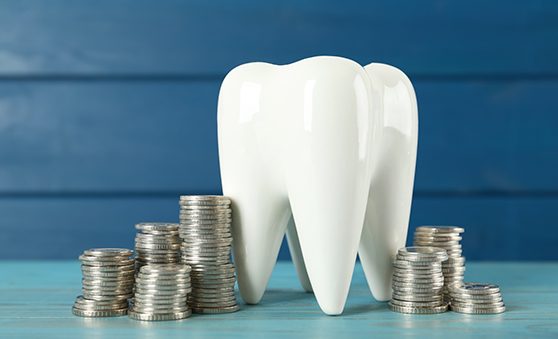



A broken or severely worn tooth requires special care to regain its appearance and function. Luckily, dental crowns have been used for centuries to restore and protect teeth that have been damaged or that were misshapen to begin with, and recent decades have seen these remarkable appliances only become more lifelike and comfortable. Here’s a brief guide to how dental crowns work and the benefits they offer for your oral health.

Dental crowns from Fort Dental are made from high-quality materials such as ceramic, gold, and porcelain-fused-to-metal, and they can be used to rebuild teeth that have been compromised by cracks, chips, fractures, or dental procedures such as root canals. These appliances can also correct a misaligned bite, improve chewing function and speech articulation, and provide internal structure for the face to give you a more youthful appearance.

Custom crowns typically take two visits to design and place. At your consultation, we’ll consider the location of your tooth and the amount of stress it receives to determine the best material to use. Once you’ve been approved for the treatment, you’ll come in to have the tooth being treated prepared for the crown. To do this, our dentist will administer a local anesthetic, reshape the tooth, take a dental impression, and fit you with a temporary crown so you can get used to wearing it. A skilled ceramist at a trusted lab will then carefully craft your custom restoration. When we receive your completed crown a few weeks later, we’ll remove your temporary appliance and permanently fix the new crown in place. This crown will renew your smile and restore your tooth’s comfort, function, and strength, and it can last for up to fifteen years if it receives excellent care.

Neglecting to appropriately protect compromised teeth can lead to worsening oral health problems such as further infection and injury. Dental crowns can prevent these issues while offering a range of other significant benefits such as:
With excellent care that includes proper oral hygiene, smart eating choices, and regular visits to our office in Fort Worth, your crown may last for fifteen years or more.

While you may want dental crowns, you should learn their price before you commit. You’ll likely end up with a treatment you can’t afford otherwise, risking your budget. Just note that the cost of dental crowns varies; you’ll need to consult our dentists for a precise estimate. Our team will also strive to make your care affordable, walking you through pricing factors, dental insurance, etc. Get more details by reading below or by calling our office!
Our team will perform a thorough oral exam at your consultation. By doing so, we’ll (among other things) assess and confirm factors that affect your dental crowns’ cost. Such things include:
Due to the factors above, very cheap dental crowns don’t work well. Their low prices tend to reflect poor quality that won’t help your smile. Given these facts, you should try to buy a moderately priced crown whenever possible.
In general, dental insurance does cover dental crown treatments. Most plans view these special caps as medically necessary, so they’ll meet half of a crown’s price. Your own policy has a good chance of letting you enjoy great benefits.
However, exceptions exist to these points; your insurance policy may differ. You’d do well to confirm your plans benefits before treatment. In fact, our dental team will help you contact your plan provider if you need assistance.
In general, dental insurance does cover dental crown treatments. Most plans view these special caps as medically necessary, so they’ll meet half of a crown’s price. Your own policy has a good chance of letting you enjoy great benefits.
However, exceptions exist to these points; your insurance policy may differ. You’d do well to confirm your plan's benefits before treatment. In fact, our dental team will help you contact your plan provider if you need assistance.
As effective as they are, dental crowns don’t need to “break the bank.” Visit our office and learn how to finance these caps soon!
Historically, restorations like dental crowns consisted of amalgam mixtures of metal like copper, silver, and mercury. Thanks to updated dental technology and materials, our Fort Dental team provides lifelike, tooth-colored prosthetics instead.
Typically, dental crowns are made of durable materials that can be color-matched to your natural shade, like porcelain or resin. The material used for your restoration can depend on your provider, their technology, and your current dental condition.
For example, we use same-day CEREC technology to provide your prosthetics in the same visit as your initial appointment. These are typically carved out of a solid block of ceramic that’s placed into a special milling machine in the office.
Yes and no! Although dental crowns are cemented in place and are not intended to be removed, they don’t typically last forever and usually require replacement at some point. Because of this, some providers consider them a long-term solution rather than a ‘permanent’ one.
However, we must remove a small amount of enamel from your tooth for your restoration to fit correctly over it without appearing overly bulky or awkward. This protective outer layer doesn’t regenerate, making this an irreversible change to your smile. Not only that, but your tooth is slightly weakened and somewhat more vulnerable to decay or injuries without a prosthetic in place. Fortunately, your dental crown is incredible durable and provides your damaged tooth with an added layer of protection.
If you’re concerned that using tooth-colored materials means that you’re sacrificing style for longevity, you can set your fears aside! Dental crowns made from resin or ceramic can last anywhere from 5 to 15 years or longer, depending on how well you maintain them and where they’re located.
For instance, you should brush and floss twice daily to remove plaque and bacteria that contribute to tooth decay and gum disease. Your restoration can’t get cavities, but the underlying tooth can. If it becomes destabilized, there’s nothing to hold it in place.
Also, dental crown covering a molar sustains more bite and chewing pressure that can wear it down faster, resulting in chips, cracks, and other injuries. That means it’s more likely to require replacement sooner than one in the front of your mouth.
Your new tooth can potentially last a decade or longer, but understanding the signs of a failing dental crown can help you get help sooner if needed.
You might need a new prosthetic if you notice: